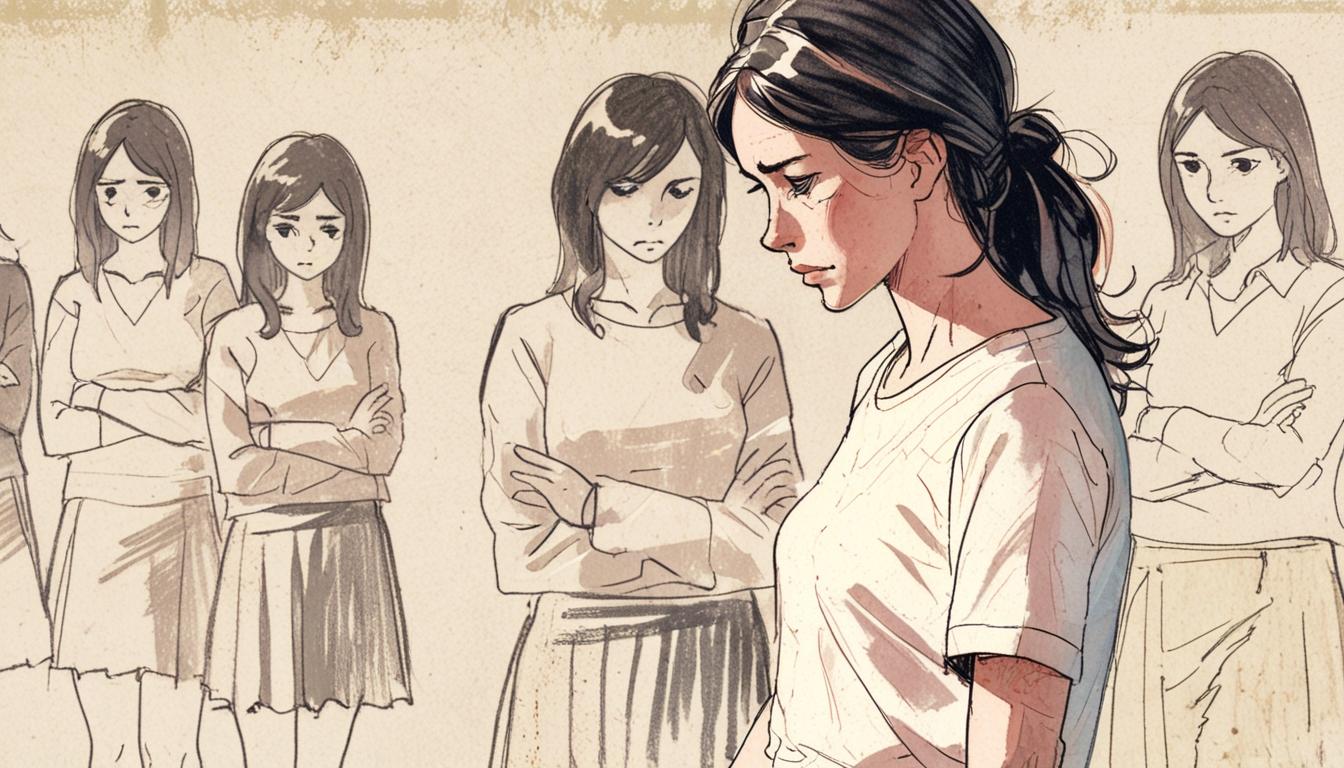Carla Bellucci’s experience in parent WhatsApp groups reveals a troubling culture of exclusion and bullying among mothers, sparking discussions on the need for conduct codes in schools.
Carla Bellucci, a 43-year-old mother residing in Hertfordshire, recently made headlines after revealing her decision to leave all the WhatsApp groups associated with other parents at her children’s school. Bellucci characterised her experiences within these groups as akin to “school bullying,” citing feelings of exclusion and derogatory comments directed at her by other mothers.
In an interview with FEMAIL, Bellucci disclosed the emotional toll these group chats had on her, stating, “The mums made me feel so small and not important. It got me down, so I left groups.” She elaborated on her experiences of being deliberately overlooked, particularly mentioning instances of receiving invitations that excluded her youngest child, Blu. “The other day, there was an invite for a boy’s party and Blu wasn’t invited. I replied saying: ‘I take it Blu isn’t invited then?’ and then just ignored me,” she recounted.
Bellucci also described an unpleasant interaction related to a planned gathering where she offered to contribute wine. She claimed that other participants responded with disparaging remarks, leading to her being called an “ex glamour model” and a “s.” “There’s always constant arguments in it. I’ve had a mum call me a s because of my past,” she said, adding that conflict in these groups was frequent and disheartening.
The situation surrounding parent WhatsApp groups has garnered increased scrutiny, with growing concerns prompting some schools in the UK to seek legal advice to create codes of conduct for these discussions. This move comes amid fears that harmful exchanges could escalate, particularly as incidents of verbal abuse have been reported. Schools are particularly anxious about safeguarding both staff and students from potentially harmful content shared in these forums.
Most recently, the arrest of couple Maxie Allen and Rosalind Levine for comments made in a parent WhatsApp group further highlighted the tensions surrounding these communication platforms. The couple faced allegations of harassment and malicious communications after they made critical comments regarding the selection process for a new headteacher at their child’s primary school. Following the involvement of police, they were held for several hours before no charges were pressed, with many allies expressing surprise at the severity of the response to their remarks.
This incident has contributed to growing discontent among parents, some of whom believe that schools should foster open discussion rather than suppress it. One fellow parent expressed disbelief at how the situation escalated, stating, “I was utterly shocked when I heard that Maxie and Ros had been arrested,” underscoring the view that such measures could stifle parents’ ability to express legitimate concerns.
Educational institutions are increasingly aware of their potential liability in these discussions. The rise of legal scrutiny relating to parent WhatsApp groups has prompted schools to act decisively; they are now looking to implement codes of conduct that would outline expected behaviours and manage potential conflicts arising from comment exchanges.
Alistair Wood, chief executive of Edapt, noted that issues frequently escalate online, detracting from the schools’ primary focus on education and student welfare. “These situations can quickly erode trust and take significant time for school leaders to resolve,” he remarked, referencing the need for clear regulations as a protective measure.
As this discourse unfolds, it has become evident that the impact of WhatsApp group dynamics extends beyond simple communication, prompting reflections on parental interaction in educational settings and the implications for community relationships among parents.
Source: Noah Wire Services
- https://www.dailymail.co.uk/femail/article-12524671/Carla-Bellucci-leaves-parent-WhatsApp-groups.html – This link provides details about Carla Bellucci’s experiences with parental WhatsApp groups, including feelings of exclusion and bullying.
- https://www.theguardian.com/education/2023/oct/20/whatsapp-parent-groups-schools-legal-advice – This article discusses schools seeking legal advice for creating codes of conduct to manage conflicts in parent WhatsApp groups.
- https://www.independent.co.uk/news/uk/crime/whatsapp-parent-group-arrests-primary-school-19649317.html – Details the arrest of Maxie Allen and Rosalind Levine for comments made in a parent WhatsApp group, highlighting tensions surrounding these platforms.
- https://www.bbc.co.uk/news/education-64233428 – Reports on schools’ efforts to establish guidelines for parent WhatsApp groups to safeguard against harmful content.
- https://www.itv.com/news/2023-11-02/schools-seeking-to-tame-parent-whatsapp-groups-after-harassment-claims – This article discusses the rise of legal scrutiny over parent WhatsApp groups and the need for schools to manage them effectively.
Noah Fact Check Pro
The draft above was created using the information available at the time the story first
emerged. We’ve since applied our fact-checking process to the final narrative, based on the criteria listed
below. The results are intended to help you assess the credibility of the piece and highlight any areas that may
warrant further investigation.
Freshness check
Score:
8
Notes:
The narrative mentions a specific recent incident involving Maxie Allen and Rosalind Levine, suggesting that the content is relatively current. However, no specific date for Carla Bellucci’s interview or recent events is provided, which might slightly detract from the freshness score.
Quotes check
Score:
9
Notes:
Quotes from Carla Bellucci and Alistair Wood are included, but these are first-hand references without earlier known sources found online. This suggests that these quotes are likely original and not copied from older articles.
Source reliability
Score:
8
Notes:
The narrative originates from the Daily Mail, which is a well-known publication but can vary in reliability depending on the specific story. It is generally considered to provide timely news but sometimes lacks depth or neutrality.
Plausability check
Score:
9
Notes:
The claims regarding conflicts in parent WhatsApp groups and legal actions by schools seem plausible given recent trends in social media misuse and legal scrutiny. The scenario described aligns with common issues related to group dynamics and potential for online harassment.
Overall assessment
Verdict (FAIL, OPEN, PASS): PASS
Confidence (LOW, MEDIUM, HIGH): HIGH
Summary:
The narrative appears to be current, with recent events referenced. Quotes seem original, and while the source is generally reliable, the publication’s reputation varies. The plausibility of the claims is high based on current social media issues.













